
 Flash News
Flash News
Theth action, resident in tears: I built on my land with my life's expenses, the state should not destroy it
Directors targeted! After Fier and Durrës, Rama arrives in Elbasan
Name/Identification of the 23-year-old found dead near Shkopet Lake
IKM action in Theth, residents come out in protest
Reported missing by his father, 23-year-old found dead near Shkopet lake
BIRN: The Bank of Albania has intervened for the stability of the lek exchange rate
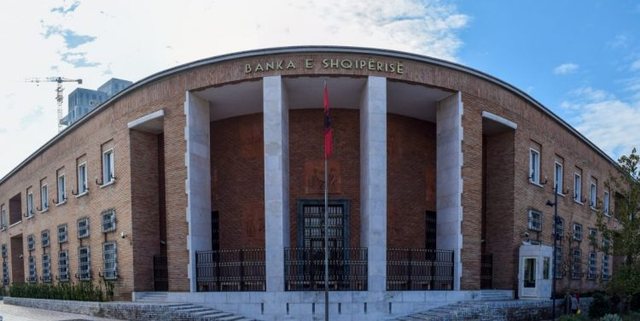
The Bank of Albania admitted on Thursday in a written response to a request for comment by BIRN that the stability of the exchange rate in Albania is caused by its operations in this market while insisting that the country continues to live, at least officially, under the regime of free floating exchange rate.
"Regarding the stability of the exchange rate during the last period, we inform you that this stability has also reflected the operations of the Bank of Albania in the foreign exchange market," stated BSH in the response to BIRN.
"These operations were conducted in accordance with our legal mandate, our foreign exchange intervention policies and regulations. Further details will be provided by the Bank of Albania at a later time, in accordance with our previous regulations and practices," the response further states.
However, to the direct question whether the lack of normal volatility in this market reflects a change in the exchange rate regime, BSH stated: "The Bank of Albania has not changed the exchange rate regime. This regime has been and is a free regime."
The Albanian lek has traded within an extremely tight band with the euro since the beginning of May until today, with a tendency to be an almost fixed exchange rate throughout the month of July. During this period, the euro reached its highest point on May 30 at the rate of 101.14 ALL and the lowest point on June 25 at the rate of 100.24 ALL.
The lack of volatility was even more pronounced during the month of June.
The intervention of the Bank of Albania in the foreign exchange market is not something unknown or unusual, but keeping the exchange rate in such a narrow band seems to be something new in the history of the country's monetary policy.
BSH's intervention in the market comes after a period of many years of unusual strengthening of the lek against the euro, a trend that started around the end of 2017 when one euro cost 140 lek and that strengthened during 2022 and 2023. The Bank of Albania and the government declare that the strengthening unusual is the result of the country's economic success, while critics note that the excessive presence of euros in the market is related to illegal activities and the laundering of money from illegal activities, mainly in the construction market.
The intervention, which is believed to be on the restraining side of the lek's strengthening, carries significant implications for both businesses and consumers as it raises questions about the real state of currency bubbles in the country, the presence of money of unknown origin in hard currency as well as broader social balances.
Above all, the intervention has an inflationary effect, which means that citizens may actually be paying a high cost of living due to the presence of easily earned euros abroad.
Albanians have been faced with abnormally high prices in the real estate sector, while stopping the strengthening of the lek through the intervention of BSH means the purchase of excess currency in the market with lek, which leads to inflation of the lek and practically transfers the abnormally high prices of real estate in the rest of the economy.
The foreign exchange rate regime is a seemingly technical issue that most consumers and businesses are unaware of. But placing the lek in a narrow fluctuating band for a significant period of time, regardless of whether such a policy is publicly stated by BSH or not, constitutes a significant change with significant consequences, whether positive or negative for the general public .
In the region of Eastern and Southeastern Europe, Poland, Hungary, and Albania maintain a free floating exchange rate regime, while Bulgaria, Bosnia and Herzegovina, and North Macedonia maintain a fixed exchange rate. Serbia decided a few years ago to switch to a free floating "managed" exchange rate, mainly in intervention to curb currency devaluation, devaluation caused by the generally irresponsible budgetary policies of the government of this country.
Albania established the free floating exchange rate regime in 1992 and has not discussed the issue publicly since then. The alternatives to this regime are the regime of the fixed exchange rate or that of the exchange rate with a floating band. Each of these types of regimes has its pros and cons. The most important thing is that the fixed or banded exchange rate helps businesses to be clear about the course of the exchange rate in the coming years or decades and consequently, lowers risk premiums and helps in economic development. What the floating exchange rate does is that, while sacrificing the security of the exchange rate and thus increasing the necessary profit margins for businesses, it corrects foreign exchange flows while avoiding the risk of accumulating potential crises in the country's external position.
The fixed exchange rate carries another problem. It forces governments and central banks to hold high reserves, which must be used to offset the shocks that the fixed exchange rate keeps hidden.
As a rule, the Bank of Albania informs the public about the intervention in the foreign exchange market three months late. The size of the current intervention is expected to be announced in September of this year and the data on currency purchases will give us an idea of how many surplus euros there are currently in Albania./ BIRN
Latest news

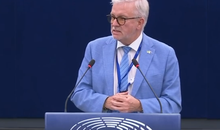


Hoxha: We will have a parliament that will surpass any comedy program!
2025-07-09 10:10:32

Directors targeted! After Fier and Durrës, Rama arrives in Elbasan
2025-07-09 09:53:57
Name/Identification of the 23-year-old found dead near Shkopet Lake
2025-07-09 09:42:34
IKM action in Theth, residents come out in protest
2025-07-09 09:34:54
Reasons why the EU has not imposed new sanctions against Russia
2025-07-09 09:18:35
DW: Online scams increase human trafficking
2025-07-09 09:01:29

Reported missing by his father, 23-year-old found dead near Shkopet lake
2025-07-09 08:42:13

Horoscope, what do the stars have in store for you today?
2025-07-09 08:25:44
Sun and rain, Wednesday with unstable weather
2025-07-09 08:06:58
Posta e mëngjesit/ Me 2 rreshta: Çfarë pati rëndësi dje në Shqipëri
2025-07-09 07:52:02

Tabaku: Salianji bore a political cost that no one in Albania has borne
2025-07-08 22:36:15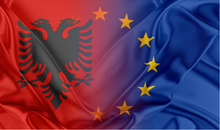


Sekretet për të shijuar verën si një ‘profesionist’
2025-07-08 21:45:06


Albania's Waste Crisis: Toxic Smoke and Deep Governance Problems
2025-07-08 21:13:07
Alarming pollution in Fushë-Arrëz, copper factory waste turns the Fan River red
2025-07-08 21:07:14

Poll/ How do you assess the Prime Minister's intervention in local government?
2025-07-08 20:40:01
28 arrested in Italy and Spain for drug trafficking, including an Albanian
2025-07-08 20:24:14
Residents clash with police in Theth: We are on our land
2025-07-08 20:11:41
Death of 27-year-old in Lipjan, Osmani: To be investigated independently!
2025-07-08 20:06:52
Trump promises US will send more weapons to Ukraine
2025-07-08 19:54:25

EU targets health, education, police and cadastre as areas of corruption
2025-07-08 19:23:34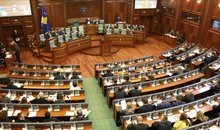




Salianji after his return: I did not oppose for functions, but for vocation
2025-07-08 18:23:15
Will he run in the 2029 elections? Here's how Salianji answers
2025-07-08 18:16:09
Boat captain drowns after diving into water to save two tourists in Shkodra
2025-07-08 18:05:12
Salianji from the DP headquarters: I brought a drug trafficker to justice
2025-07-08 18:03:26
After Fier, Rama "landes" in Durrës, dismissals expected
2025-07-08 17:53:32
Ervin Salianji arrives at the blue headquarters, welcomed by supporters
2025-07-08 17:45:12

EU approves final steps for Bulgaria's Eurozone membership
2025-07-08 17:43:06

Zhupa after Salianj's release: Inspiration for every opposition member
2025-07-08 17:19:39
Actor David Killick passes away
2025-07-08 17:09:23



Threatened with dismissals, Rama arrives at the Fier municipality
2025-07-08 16:39:19
Extreme temperatures temporarily close Acropolis in Greece
2025-07-08 16:30:34

A plot of cannabis is discovered in Mazha, Kruja
2025-07-08 16:13:48

Republika Srpska allocates additional 22 million euros for lobbying in the US
2025-07-08 15:52:04

Spices that protect you from mosquitoes!
2025-07-08 15:30:03

Accident on the Vlora-Qeparo axis, one injured
2025-07-08 15:11:52
Berat, 17 years part of UNESCO's world heritage
2025-07-08 15:03:30
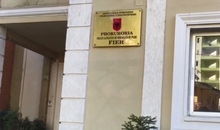

Cost of living increases, inflation rises to 2.4% in June, driven by food
2025-07-08 14:29:54
VIDEO/ Restaurant roof collapses in Italy, one victim and ten injured
2025-07-08 14:18:44
Requested release from cell, Supreme Court leaves Veliaj in prison
2025-07-08 14:07:41
TikTok shutdown/ Austrian media: Rama benefited politically from the app ban
2025-07-08 13:48:25
Acropolis temporarily closed due to heat
2025-07-08 13:31:09



Salianj's release/Berisha: He was politically condemned by Rama and Xhafa!
2025-07-08 13:00:13

Knife attack on Peshkopia Boulevard
2025-07-08 12:44:10


Fier Court decides on the conditional release of Ervin Salianj
2025-07-08 12:15:23
Cost of living increases, inflation rises to 2.4% in June due to food
2025-07-08 12:00:16


Requesting conditional release, Ervin Salianji arrives at the Fier Court
2025-07-08 11:16:36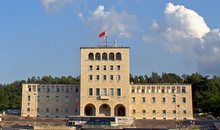
The first phase of university applications begins today
2025-07-08 11:10:52
Fire in Lura, flames endanger the National Park
2025-07-08 10:53:43
Trump warns of 35% tariffs on Serbia and 30% on Bosnia and Herzegovina
2025-07-08 10:37:32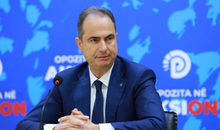
Thethi rooster and the dung cock
2025-07-08 10:24:01

Fire in Dukat endangers Llogara National Park
2025-07-08 10:01:39
International drug search: 36-year-old arrested in Durrës (NAME)
2025-07-08 09:50:48
Thethi, tourists "criticize" modern trend
2025-07-08 09:39:54
Fire on Mount Dukat still active, Llogara National Park at risk
2025-07-08 09:28:12
Veliaj's appeal to be heard today in the High Court
2025-07-08 09:16:02
"Bad sign for democracy"/ Parliament neglects reporting by institutions
2025-07-08 09:04:56
Today's hearing at the Fier Court, Salianji requests conditional release
2025-07-08 08:56:39


Horoscope, what do the stars have in store for you today?
2025-07-08 08:16:19
Weather forecast/ How temperatures will vary throughout the day
2025-07-08 08:02:37
Morning Post/ In 2 lines: What mattered yesterday in Albania
2025-07-08 07:48:30
